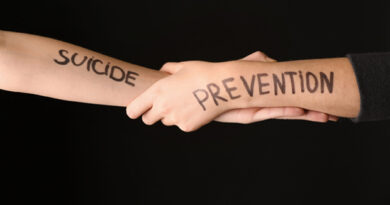A Helpful Perspective on Gratitude
“Gratitude is the practice of appreciating the good things in life – to be thankful for all the things that make life good and meaningful.”
We all experience a mix of love, loss, joy, tragedy, failure, and triumph. No matter how easy life appears for some, we all have to endure hardships and challenges. Yet focusing our thoughts, time, and energy on the more difficult aspects of life only serves to amplify the negative.
Acknowledging those hardships while intentionally focusing our awareness on who and what we have, on our accomplishments and daily pleasures can emphasis feelings of fulfillment and happiness. One method of achieving this focus is through gratitude. Gratitude is the practice of appreciating the good things in life. It is the conscious pursuit to acknowledge and be thankful for all the things that make life good and meaningful.
There are ample studies that establish the benefits of gratitude. The resulting list is noteworthy in the magnitude and diversity of the many emotional, physical, social, and even behavioral benefits. I will not provide a complete and exhaustive list, but a sample will demonstrate the point.
• Practicing gratitude has been shown to reduce anxiety and depression, increase happiness, build resiliency, increase sense of meaning of life, and improve life satisfaction.
• Physically, being grateful can boost the immune and endocrine systems by decreasing the stress hormone cortisol and increasing the bonding hormone oxytocin. People that are grateful have better cardiac functioning, lower blood pressure, less inflammation, sleep better, and report fewer aches and pains.
• Socially, grateful people are less jealous, more empathetic, more generous, and experience strengthened relationships. Practicing gratitude can influence positive behavior. If you appreciate what you already have, you are less likely to take it for granted.
• Grateful people are less materialistic and more likely to take control of their health by exercising, eating better, and attending regular medical check-ups.
Gratitude does not have to be an innate characteristic to enjoy the many benefits to wellbeing. Being grateful is a skill that can be practiced and honed over time through continued effort. In fact, by consciously practicing the act of gratitude, we get better at it, it becomes easier, and can become an unconscious part of our daily lives. We can train ourselves to appreciate the good in our lives and to find the positive in a situation until it becomes a habit, a way of looking at life.
Looking at life through a perspective of gratitude does not mean a denial of loss, hardship, or grief. It does not mean ignoring challenging or painful situations and pretending that everything is great. Denial and suppressing feelings will not improve a situation. But grief and gratitude can co-exist. Gratitude can be more profound in the presence of pain or loss. It can help us get through the hardships and maintain an awareness of what is going right. It allows one to go through a tragedy without losing sight of the beauty of life.
Every year as the holidays approach, we try to focus on being thankful for the many good things we have. This year has been especially stressful, uncertain, and painful for many of us. During times like this, gratitude can have an even more transformative impact. Though Thanksgiving may look different this year due to the pandemic, there are still reasons to be thankful. For some it may mean a reevaluation of priorities, spending more time with immediate family, or a renewed focus on hobbies and passions. It may mean being grateful to have food on the table, for the opportunity to be generous and help others, or for finding the strength to get through a difficult time.
This year, let’s try to bring the practice of gratitude into our lives on a daily, or even more frequent, basis until the ability to appreciate the good and the beauty becomes a habit.
I will leave you with a quote that offers a unique and beautiful perspective on gratitude. When Stephen Colbert was asked about the death of his father and two older brothers when he was ten, he replied “I don’t want it to have happened. I want it to not have happened. But if you are grateful for your life… and I’m not always, but it’s the most positive thing to do… then you have to be grateful for all of it.”
–By Courtney Rooks, Valeo Health Promotions Specialist
Valeo Behavioral Health Care
785-233-1730
Crisis Services
400 SW Oakley
Topeka, KS 66606
24 Hour Crisis Line
785-234-3300
National Suicide Prevention Life Line
1-800-273-8255
Shawnee County Suicide Prevention Coalition
SCSPC.org
Family Service and Guidance Center (18 and under)
325 SW Frazier
Topeka, KS 66606
24 Hour Crisis Number
785-232-5005
Healing after Loss to Suicide Group (HeALS)
Sandy Reams – Group Facilitator
Topeka.Heals@gmail.com
785-249-3792





